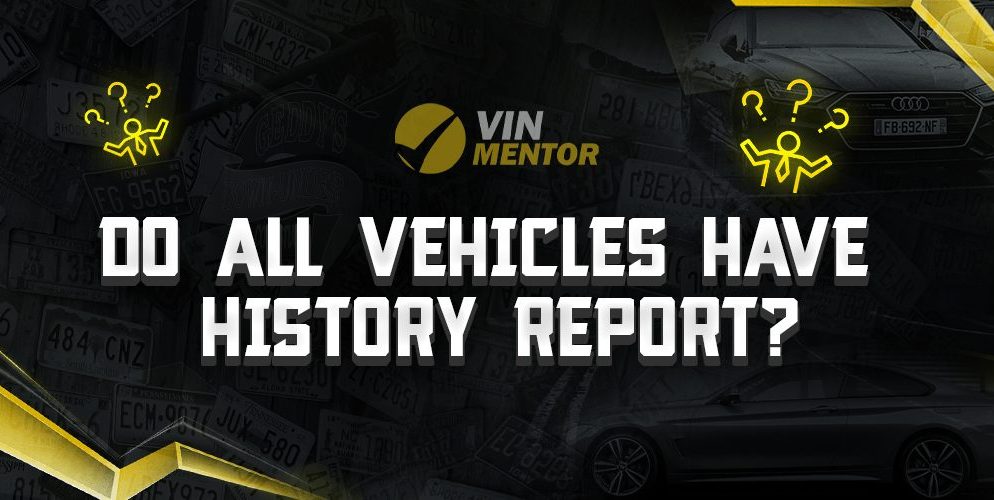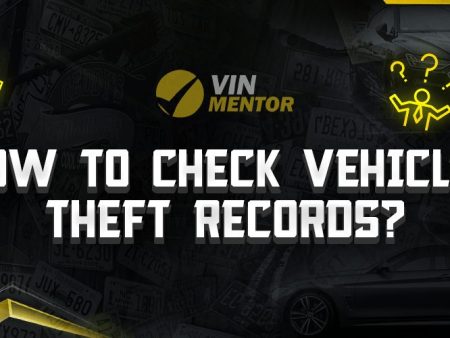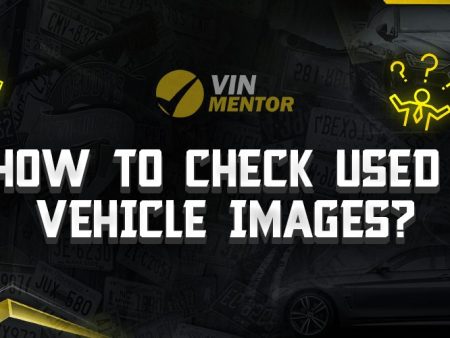

If you’re thinking about purchasing a used car, you may be wondering whether or not all vehicles have a history report. Well, the answer is not as straightforward as you might think. In this article, we will explore the world of vehicle history reports, what they are, and whether or not all vehicles come with one. So, if you’re curious about this topic, read on!
Key Takeaways
- Knowing a vehicle’s history is important when purchasing a used car.
- Vehicle history reports provide information about a vehicle’s past, including accidents, ownership, and maintenance.
- Some vehicles may not have a history report due to various factors.
- You can still obtain a vehicle history report for most vehicles.
Is It True That a History Report is Available for Every Vehicle?
In short, no, not all vehicles have a history report. However, before we delve into why this is the case, let’s first discuss what a vehicle history report is and why it’s important.
A vehicle history report is a document that provides information about a vehicle’s past. This information can include accidents, ownership history, title status, service records, and more. Essentially, a vehicle history report provides a snapshot of a vehicle’s life and can help potential buyers make informed decisions about whether or not to purchase a specific vehicle.
So, why isn’t there a history report for every vehicle? There are a few reasons for this:
- Not all vehicle owners may have kept detailed records of their car’s history. This is especially true for older vehicles or those that have changed hands multiple times.
- Some states or countries may not require vehicle history reports for certain types of vehicles or transactions.
- Another reason why a vehicle may not have a history report is if it was involved in an accident that was never reported to the authorities or an insurance company. While this may be uncommon, it is still a possibility, and can make it difficult for potential buyers to get a complete picture of the vehicle’s past.
However, just because a vehicle doesn’t have a history report doesn’t mean that you’re out of luck. There are still ways to obtain information about a vehicle’s history, even if it doesn’t come with an official report.
How to Get a Vehicle History Report?
Getting a vehicle’s history report is an important step to take when considering the purchase of a used car. Here are the steps to follow in order to obtain a vehicle’s history report:
- Obtain the Vehicle Identification Number (VIN) of the car in question. This can usually be found on the driver’s side dashboard, the driver’s side door jamb, or on the vehicle’s title and registration paperwork.
- Choose a reputable provider for the vehicle history report. There are several companies that provide this service online. Each company has its own pricing structure and report format, so it’s important to research and choose the provider that best fits your needs.
- Enter the VIN into the provider’s database and pay any necessary fees. The fee for a vehicle history report can range from around $10 to $40 depending on the provider and the level of detail provided in the report.
- Review the report for any potential red flags. A vehicle history report can provide valuable information about a car’s past, including accident history, ownership history, title status, and more. Look for any signs of damage or irregularities that could affect the safety or value of the vehicle.
- Ask the seller or dealership for any additional records or information. While a vehicle history report can provide a comprehensive overview of a car’s past, it may not include every detail. Ask the seller or dealership for any service records, receipts, or other documentation that can help fill in any gaps in the report.
By following these steps and obtaining a vehicle history report, you can make an informed decision about the purchase of a used car and avoid any potential surprises down the road.
Conclusion
In conclusion, not all vehicles come with a history report, but that doesn’t mean you can’t obtain information about a vehicle’s past. Knowing a vehicle’s history is important when purchasing a used car, as it can help you avoid purchasing a vehicle with a hidden past. Whether you’re using an online database or asking the seller for records, there are still ways to get the information you need to make an informed decision about your next vehicle purchase. To do so, you can check out our list of the top recommended VIN Check Websites.
FAQ
Are vehicle history reports always accurate?
Vehicle history reports are based on the information available in databases, such as DMV records, insurance claims, and accident reports. While they can provide a lot of valuable information, they are not always 100% accurate. It’s possible that some information may be missing or incomplete, so it’s important to use them as a starting point and do additional research, such as contacting the previous owners or getting a pre-purchase inspection.
Can I get a free vehicle history report?
There are some websites that claim to offer free vehicle history reports, but they often provide limited information or require you to sign up for a paid subscription. It’s important to use a reputable provider and be willing to pay for a comprehensive report to get the most accurate and detailed information about a vehicle’s history.
How far back do vehicle history reports go?
The length of time covered by a vehicle history report can vary depending on the provider and the information available. In general, they can cover the entire history of the vehicle, including its ownership, registration, accident history, and service records. However, the level of detail provided may depend on how far back the records go and how complete they are.
Can I still buy a vehicle without a history report?
While it’s always recommended to obtain a vehicle history report before purchasing a used car, it’s not always possible or necessary. If the vehicle is relatively new and has only had one or two owners, and the seller is able to provide detailed records, you may be comfortable proceeding without a history report. However, for older or more heavily-used vehicles, it’s important to have as much information as possible to make an informed decision.
Can I sell a vehicle without a history report?
While it’s not strictly required to provide a vehicle history report when selling a used car, it’s a good practice to be upfront and transparent about the vehicle’s history. Buyers are often wary of purchasing a vehicle without knowing its full history, so providing a detailed report can help build trust and increase the likelihood of a successful sale.












